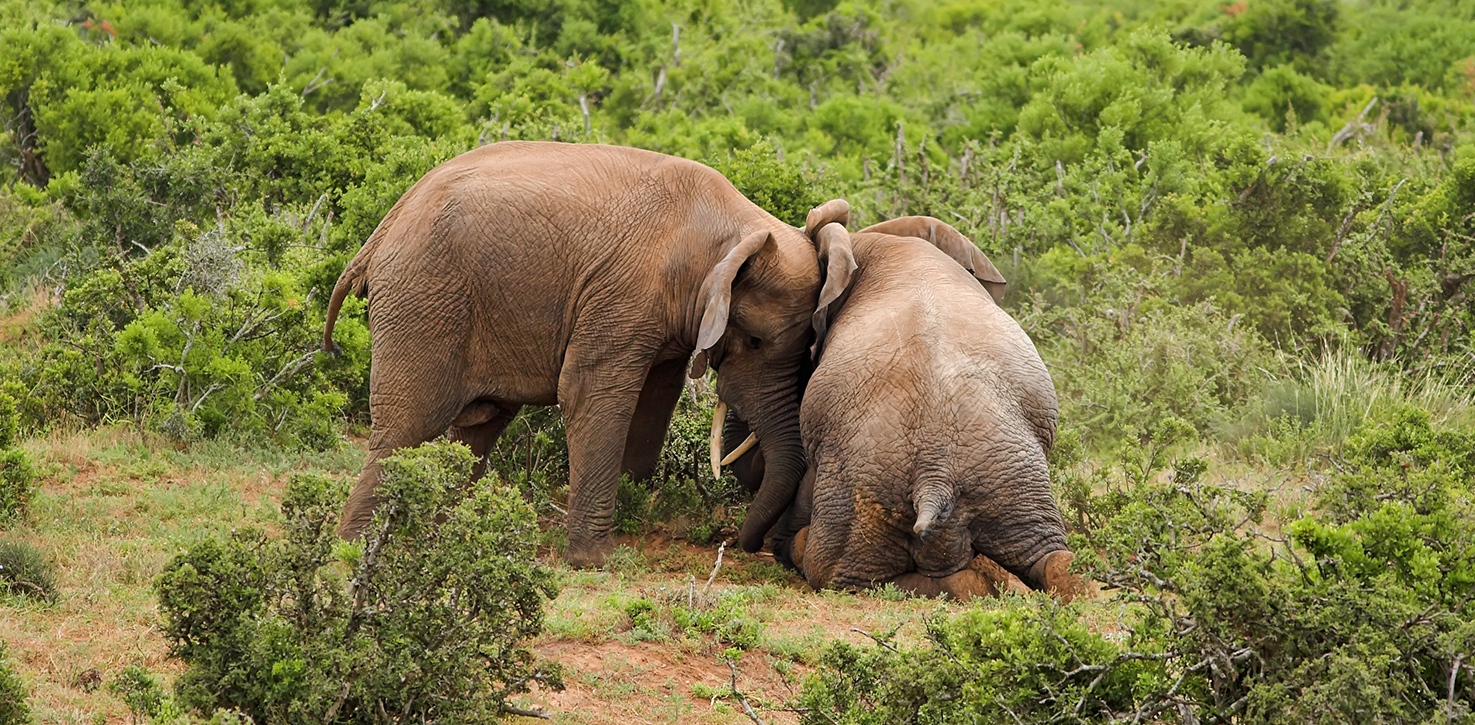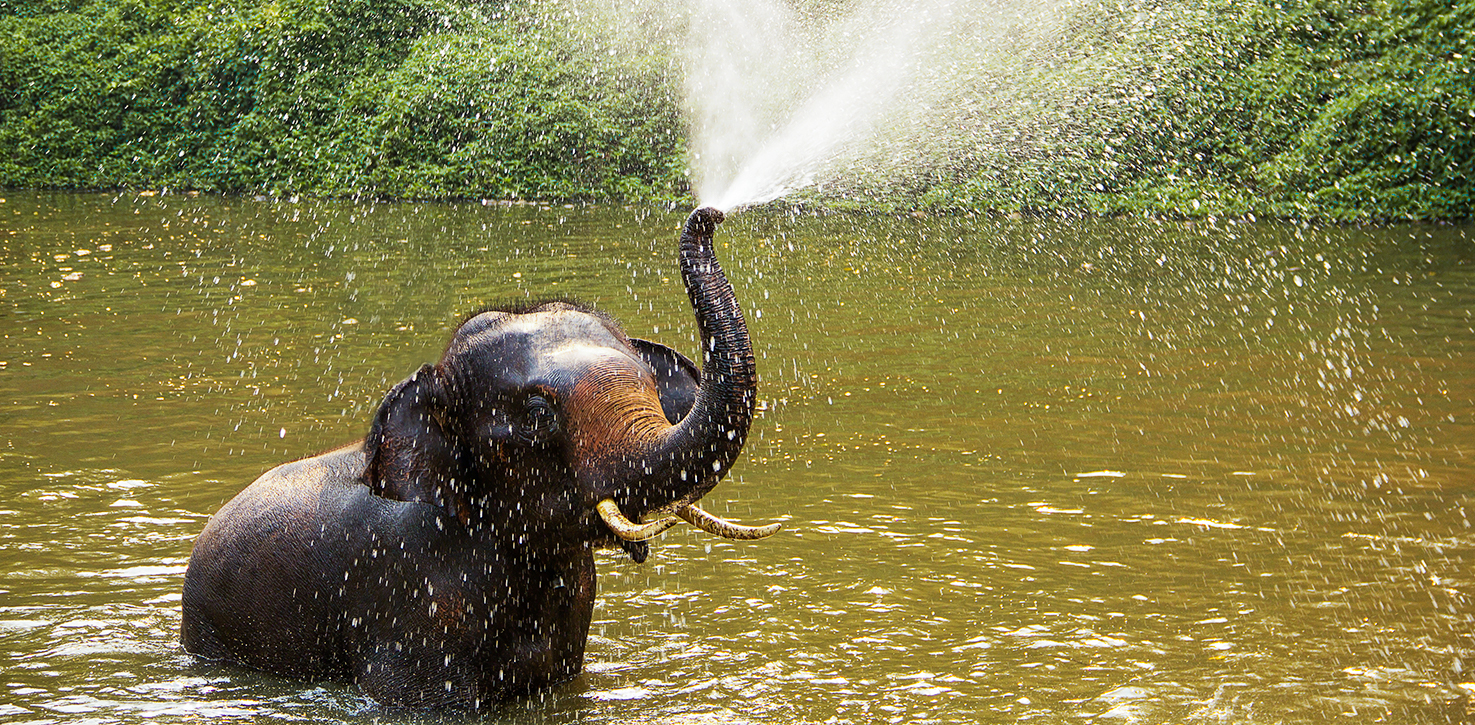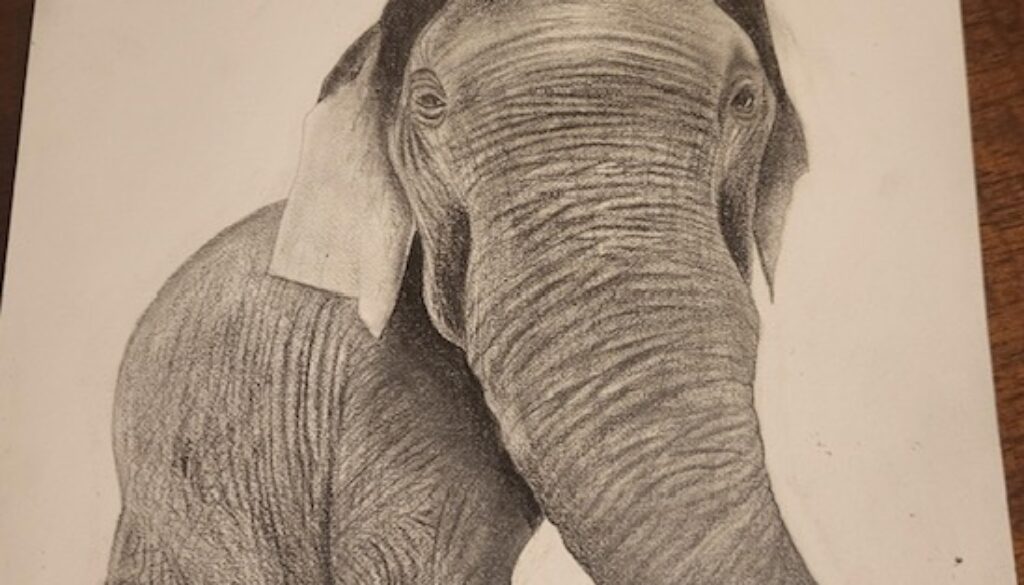What Can Elephants Teach Us About Emotions?
*Read the original article here: https://takingonhealthy.com/what-can-elephants-teach-us-about-emotions/
*Featured image drawn by Nisha Mele, age 17
When we think of animals that share a similar range of complex humans emotions, we may think of monkeys or dogs. However, research reveals that elephants also display a wide variety of emotions and higher thinking, making them more similar to humans than some have thought.
Just like people, they use visual cues, sounds and body language to articulate their emotions. They engage in teamwork, problem solving and rituals. All of these similarities between humans and elephants have enticed researchers, but one doesn’t have to be an expert to learn valuable lessons from the largest land mammals on Earth.
Empathy
Feeling empathetic is a main component of being human. It’s why someone would pull over to help another driver with a flat tire or give money to a charitable organization. People tend to humanize and respect the animals that also show empathy, such as dogs. But there is an enormous amount of evidence that proves elephants also feel empathy.
One study showed Asian elephants reassure and comfort other members of their herds when they are in distress. This proves they are intelligent enough to recognize when other elephants are upset and that they are compassionate beings. Research conducted in Thailand revealed that elephants acted distressed when they saw another herd mate in angst. Elephants are known to provide help to injured elephants (such as slowing down the herd so the injured one can keep up), and there are many touching online videos that show elephants saving calves’ lives.
Elephants tenderly taking care of youngsters and engaging in teamwork are clear signs they share the same love and unity as a human family.
Elephants’ acts of empathy, selflessness and condolences unveil them as a species with inclinations similar to what our human heroes, such as firefighters, EMTs and social workers, face every day.

Love
There are countless ways that humans express the incomparable emotion of love. However, universally, we show our love toward family members or friends by taking care of them, comforting them, and making them happy. Similarly, an elephant mother displays her love for her calves by keeping them close by, helping them when they need it and making soft, soothing noises. Since elephants spend their lives in herds (females with other female relatives and younger male relatives, and older males with other males), other females in a herd will also take turns caring for the calves. Elephants tenderly taking care of youngsters and engaging in teamwork are clear signs they share the same love and unity as a human family.
Grief
A well-known anomaly with elephants is that they appear to acknowledge the concept of death. Elephants often conduct rituals after a family member has died, such as gathering in a circle around a deceased or ill herd member and laying branches and grass on the carcass. Mourning elephants have visibly depressed body language, such as sunken eyes and drooped ears. Researchers have studied elephants touching and smelling the remains of dead elephants and have found that they acknowledge other elephants’ bones over the bones of other species. These wise creatures hold funerals, mourn their dead loved ones and show signs of sadness when they revisit a location where a loved one has passed. Elephants seem to be pretty lucid when it comes to mourning and displaying grief, which is another lesson we can take from them. Sometimes mourning is the appropriate response and may help with the healing process.
Elephants’ joyful affection and love of life is a reminder to live in the moment.
Happiness
It isn’t too difficult to find wild elephants experiencing happiness. Cooling off in the water, experiencing a new calf’s birth or reunifying with other herd members are all calls for celebration. They caress each other, excitedly greet each other, play games together, trumpet, chirp, scream and flap their ears. Happiness is an emotion they enjoy expressing, which is extremely common with mammals. Elephants’ joyful affection and love of life is a reminder to live in the moment, value every fun-filled occasion and make as many happy memories as possible.

Jealousy
Jealousy isn’t a comfortable or desirable feeling, but it’s something that all people have felt. It turns out that even elephants get jealous of each other! One such example was caught on camera by a team creating a BBC documentary, in which the previously only child of a matriarch didn’t like the attention his mother gave his new, baby sibling. The older calf attempted to push the baby away from the shade at the mother’s side, but the mother shoved him back in recourse. This serves as a reminder that being jealous isn’t beneficial to the group or society as a whole, and that it’s good to try to negate jealousy with self-confidence and honesty.
Elephants may be larger than life, but if research has proven anything, it’s that their size is matched by their ability to feel. Humans have a lot to learn from these gentle giants, including a sense of community, teamwork, reassurance, selflessness and compassion.



